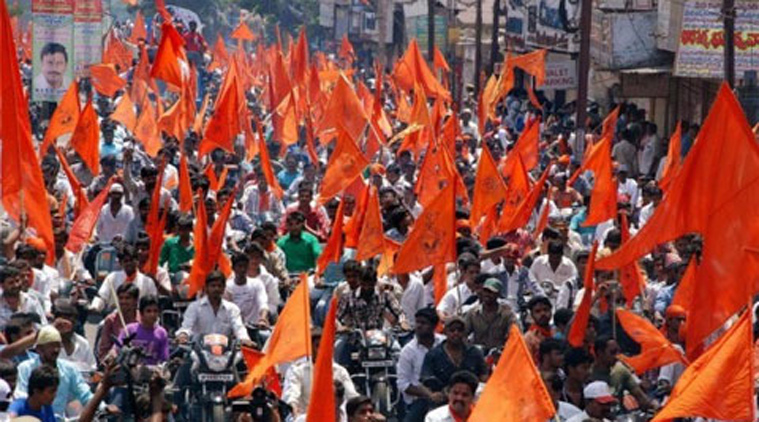
The VHP has declared it will organise a special campaign —- ‘Swarna Drishtipath 2025’ —- to eradicate what it called is “a social malpractice.”
After a senior RSS office bearer in Uttar Pradesh drew his organisation’s attention towards the practice of untouchability and claimed that discrimination based on castes was largely responsible for the religious conversion among Hindus, its offshoot Vishwa Hindu Parishad (VHP) has decided to go a step further.
The VHP has declared it will organise a special campaign —- ‘Swarna Drishtipath 2025’ —- to eradicate what it called is “a social malpractice.”
VHP joint general secretary Surendra Jain said that as part of the campaign, the outfit will send several teams (named ‘samrasta toli’, or group for equality) to the villages and those areas of the cities where discrimination based on caste is more prominent, and appeal to the people to not restrict members of some particular caste from entering the temples, put an end to caste-based cremation grounds, and let members of all castes share the water bodies (wells, canals) in the village.
Emphasising that caste-based cremation grounds create atmosphere of division in the society, a VHP leader said this practice would be eradicated by 2025. “Mrityu ke paschat bhi sabhi Hindu ek rahenge arthat ek hi shamshan ghat mein sabhi ka dah-sanskar hoga. (All Hindus will remain united even after death and their bodies would be cremated at the common ground),” reads the draft plan of Swarna Drishtipath 2025.
Another major exercise during the campaign will be the holding of ‘Hindu Sahbhoj’ where people from different castes will be invited to take meals together.
A VHP leader noted that discrimination with members belonging to Scheduled Castes by making separate arrangements for them at times of taking meal is still a general practice in rural areas.
Another office bearer cited “some temples in southern parts of the country” where entry to Scheduled Castes is still prohibited while the problem of discrimination at cremation grounds exists in small villages in remote areas across the country.
These problems (of discrimination), a VHP leader alleged, became the tools for Christians who “took advantage and lured the poor, scheduled and backward castes Hindus and converted them to Christianity.”
While the workers will be meeting villagers, a section of workers will be active on social media websites where group photographs of people belonging to upper and lower castes will be shared to spread the message of “unity among Hindus”.





